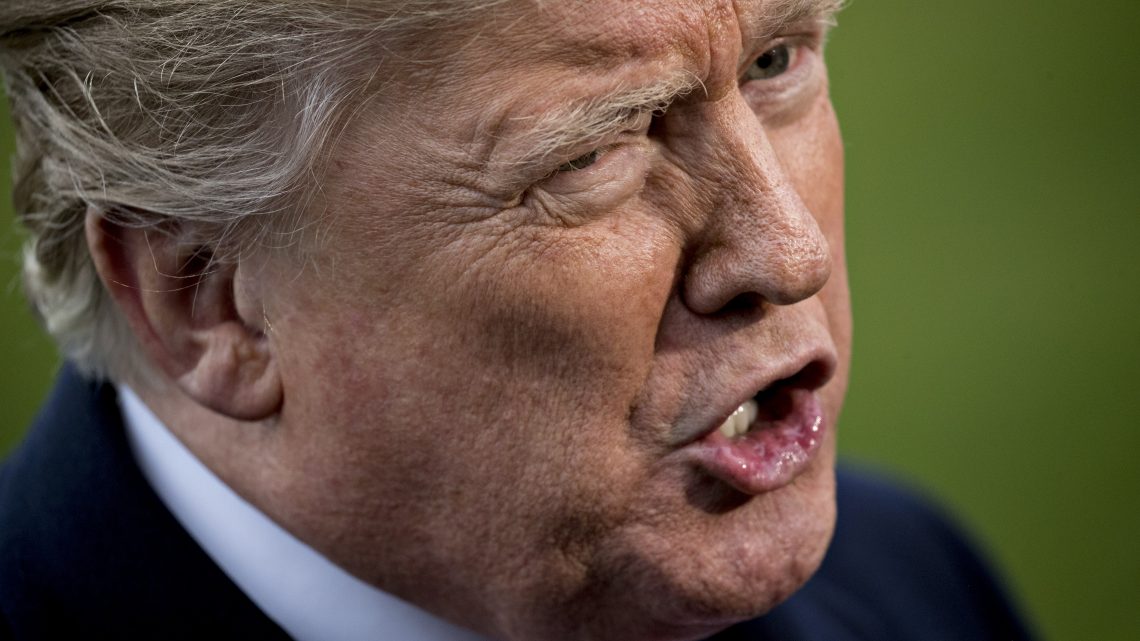
Trump Doesn’t ‘Believe’ His Own Government’s Dire Report on Climate Change
November 26, 2018On the Friday after Thanksgiving, the federal government dropped a new report outlining consequences of climate change that will hit the United States by the end of the century. Like other forecasts of the long-term effects of climate change, it was grim. According to the document, the US will see an uptick in wildfires, floods, and other extreme-weather events; disease-carrying insects may roam more freely in a warmer climate; energy will become harder to produce; industries from agriculture to tourism will be hurt, ultimately costing the economy up to hundreds of billions of dollars; and all of this will wind up hurting poor and nonwhite communities most of all.
You don't need to be a climate scientist to understand how bad things are now—California's wildfires, which are getting worse thanks in part to climate change, just killed dozens and thickened the state's air with smoke. But the National Climate Assessment, a quadrennial report mandated by Congress, was compiled by 13 federal agencies and is some 1,500 pages long. It represents a massive undertaking on the part of a massive bureaucracy charged with assessing major long-term risks—it was such big news that there was widespread speculation its release might have been timed for a holiday weekend when people tend to be less interested in news.
Donald Trump's tweet about climate change last Wednesday, on the other hand, was just 14 words long and likely took no time at all to compose, a perfect illustration of the president's disconnect from the government he sits atop:
One could go through all the reasons this tweet is wrong and bad: Climate is not weather, climate change may lead to more extreme cold-weather events, etc. But debunking Trump's climate change statements is as productive as arguing with a brick wall. The president has made it clear that his environmental policies will work to benefit oil companies and other polluters; he has no interest in addressing climate change, and as the above tweet indicates, he might not even think it's real. His response to the report on Monday was even more direct than the tweet: "I don't believe it."
If he wanted to know more about the issue—even to dress up his views in slightly more respectable language—he could ask for the report to be delivered to his desk, or for a bullet-point list of climate consequences, or for Defense Secretary James Mattis to explain why he thinks climate change is a national security threat. But there's no evidence he's done any of that, probably because the president is fundamentally uninterested in the work of governing.
This disinterest was manifest in a Sunday Washington Post story about the deficit. According to the paper's administration and congressional sources, Trump has said he wants to cut the deficit while proposing policies that would balloon it, confused the deficit and the debt, floated the idea of turning back to infrastructure spending, and demanded cuts from federal agencies while refusing to substantially cut the government's most expensive priorities. In the recent past, Trump also nonsensically promised a middle-class tax cut while Congress was in recess, and reportedly weighed firing Homeland Security Secretary Kirstjen Nielsen because she hadn't magically stopped illegal border crossings altogether. Trump's habit of saying whatever is on his mind, even if it doesn't make sense, is especially pronounced when it comes to foreign policy, where he's appeared to break from his own government on issues ranging from Russian sanctions to Qatar.
Across a range of issues and departments, Trump is eschewing the normal processes in favor of governing by whim and gut instinct. At best, this produces nothing in particular (there's almost certainly no middle-class tax cut on the horizon). At worst, it produces disastrous policies—early in his term, an ill-considered "travel ban" on citizens of some Muslim-majority countries led to chaos at airports and hardship for travelers, while the separation of families at the border earlier this year was widely condemned as pointless, gratuitous cruelty.
Importantly, Trump isn't alone in not caring about the effects climate change will have—on this and so much else, he and the GOP remain united. On Sunday, Utah Senator Mike Lee asserted that proposals to address climate change would hurt the economy, a slightly more grown-up version of denialism where you admit that climate change is real but just shrug at the prospect of doing anything in particular about it. Meanwhile, former Senator Rick Santorum accused the government scientists responsible for the National Climate Assessment of being "driven by the money."
"This is how we got Trump" has become a well-worn cliche, but it's instructive to look at non-Trump Republicans' responses to the climate report. The president's governing strategy of ignoring expertise in favor of an improvisational and frequently catastrophic method of policy-making has at times been criticized by his own party, particularly in the wake of his bizarre press conference with Russian President Vladimir Putin. But GOP elites, funded in no small part by millions of donations from the oil and gas industry, are perfectly happy to ignore or denigrate expertise on a range of issues, particularly climate change. Trump's crude version of denialism, which stands at odds not just with the scientific community, but the many parts of the federal government tasked with studying climate change, is particularly brazen. The truth is, on climate and many other issues, he's doing what any Republican president would.
Sign up for our newsletter to get the best of VICE delivered to your inbox daily.
Follow Harry Cheadle on Twitter.


